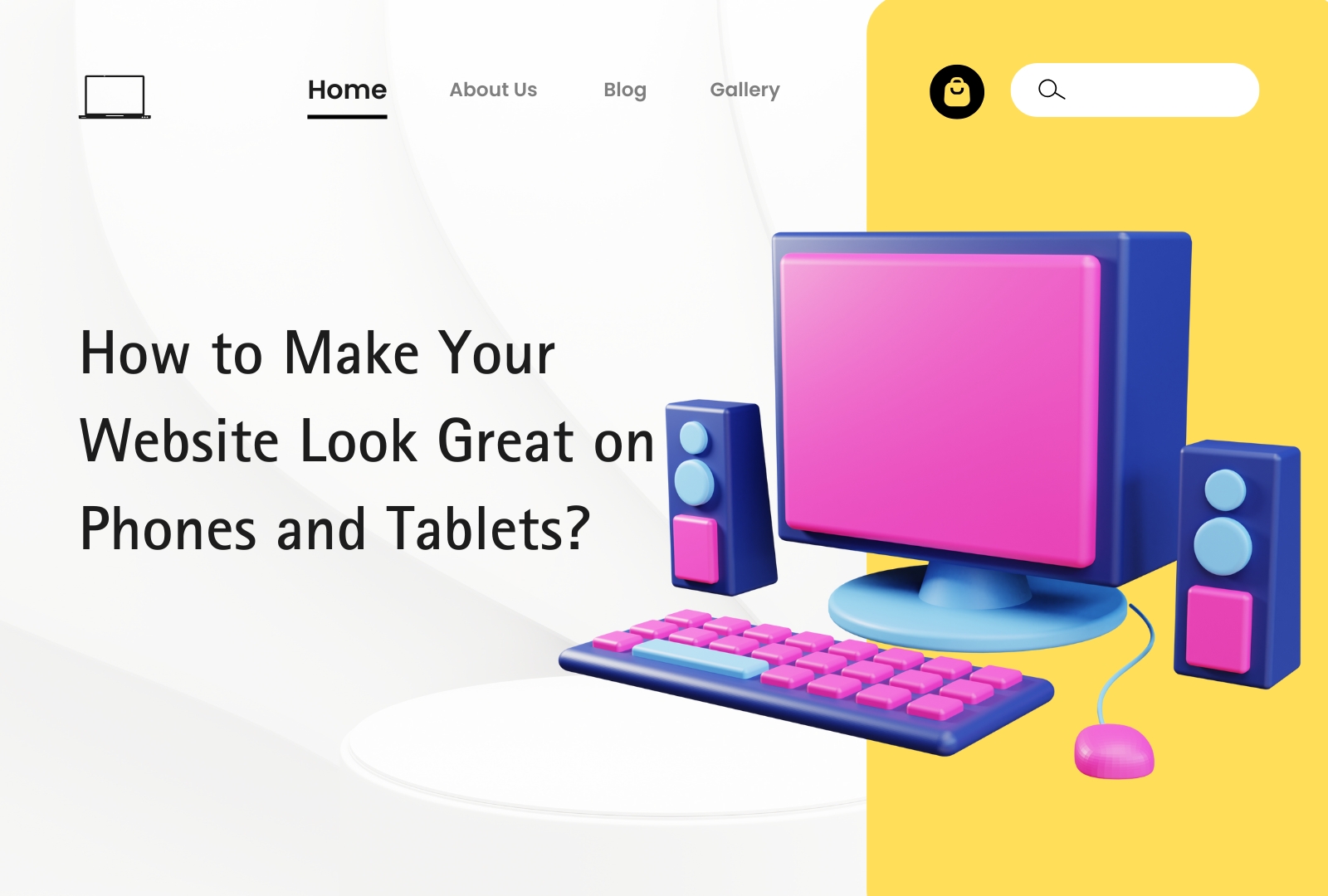In today’s digital age, where an ever-increasing number of users access websites on various devices, responsive web design has become a necessity. It’s not just about adapting to different screen sizes; it’s about enhancing the overall user experience. In this blog post, we’ll explore the importance of responsive web design and how it contributes to a seamless and engaging user experience. We’ll also delve into the most rated keywords in the realm of website designing and digital marketing.
Why Responsive Web Design Matters
Responsive web design is an approach that ensures a website’s layout and elements adapt fluidly to the screen size and orientation of the device being used. Whether it’s a desktop computer, laptop, tablet, or smartphone, responsive design optimizes the user interface, content, and functionality for each device. Here’s why it matters:
- Wider Reach: With the proliferation of smartphones and tablets, users access websites from a variety of devices. Responsive design ensures your site looks and works well on all of them, maximizing your reach.
- Improved User Experience: Users appreciate a seamless and consistent experience across devices. Responsive design eliminates the need for pinching and zooming, making navigation easy and enjoyable.
- SEO Benefits: Search engines favor responsive websites. Google, for instance, rewards mobile-friendly sites with higher search rankings, making SEO optimization more effective.
- Cost-Efficiency: Maintaining a single responsive site is more cost-effective than managing separate desktop and mobile versions.
Enhancing User Experience through Responsive Design
A responsive website design is the cornerstone of an exceptional user experience. Here’s how it enhances the overall experience:
- Consistency: Regardless of the device, users encounter a consistent brand identity, content, and navigation. This consistency builds trust and recognition.
- Faster Loading: Responsive sites are optimized for quick loading, reducing bounce rates and keeping users engaged.
- Easy Navigation: User-friendly navigation menus adapt to different screens, making it effortless for visitors to find what they need.
- Readability: Text and images are adjusted for readability, ensuring that users don’t need to zoom in or squint to read content.
- Reduced Friction: User interactions, such as filling out forms or making purchases, are streamlined for each device, reducing friction and abandoned actions.
- Engaging Visuals: Responsive design allows for striking visuals and multimedia content that adapts to the screen size, enhancing the impact of your message.
- Improved SEO: Google’s mobile-first indexing means that responsive sites are more likely to rank higher in search results, driving more organic traffic.
Keywords in Website Designing and Digital Marketing
Now, let’s explore the most rated keywords in the website designing and digital marketing domain. These keywords are crucial for optimizing your website and content to attract the right audience:
- Website Design Services: Highlight your expertise in offering professional website design services.
- Digital Marketing Strategies: Emphasize your digital marketing prowess and strategy development.
- Responsive Web Design: Showcase your ability to create websites that adapt flawlessly to various devices.
- User Experience Optimization: Promote your skills in enhancing user experiences through design and functionality.
- SEO Best Practices: Position yourself as an expert in search engine optimization techniques.
- Mobile-Friendly Websites: Stress the importance of mobile-friendly design for reaching smartphone users.
- Content Marketing: Showcase your content creation and marketing strategies.
- E-commerce Website Development: Demonstrate your capabilities in building effective online stores.
- Social Media Marketing: Highlight your skills in leveraging social platforms for brand visibility.
- Conversion Rate Optimization: Showcase your expertise in increasing website conversion rates.
- Local SEO Services: Promote your ability to enhance local businesses’ online presence.
- Email Marketing Campaigns: Highlight your proficiency in crafting and executing effective email marketing campaigns.
- Pay-Per-Click Advertising: Emphasize your knowledge of paid advertising strategies.
- Online Branding: Position yourself as a specialist in building and strengthening online brand identities.
- Web Analytics and Insights: Showcase your proficiency in tracking website performance and providing actionable insights.
Conclusion
Responsive web design isn’t just about aesthetics; it’s a strategic approach to create a seamless and engaging user experience across all devices. By incorporating the most rated keywords in website designing and digital marketing, you can not only highlight your expertise but also attract the right audience. To succeed in the digital landscape, businesses must prioritize responsive design and ensure their online presence adapts to the needs and expectations of their diverse audience. In doing so, they enhance user experiences, boost SEO rankings, and drive meaningful engagement.





